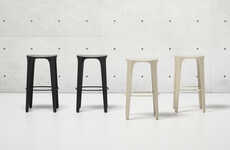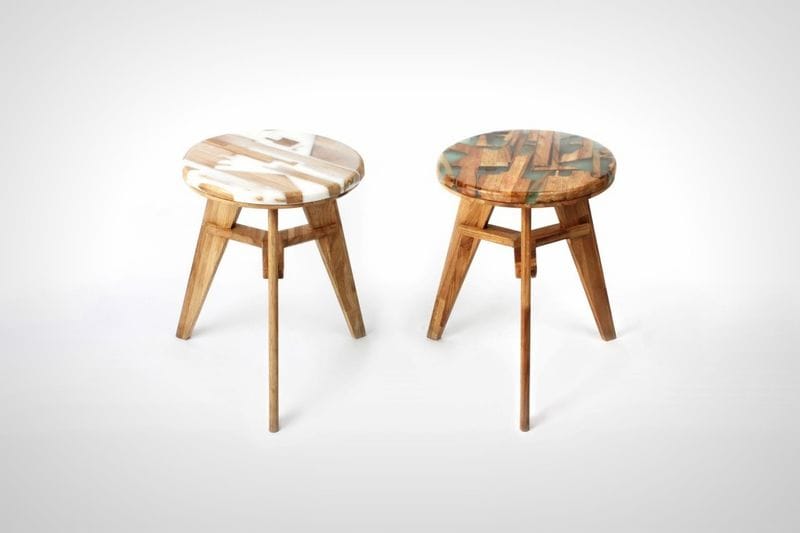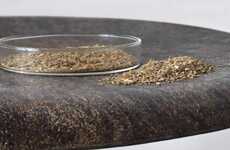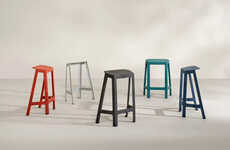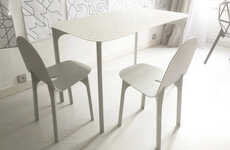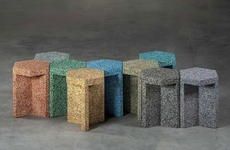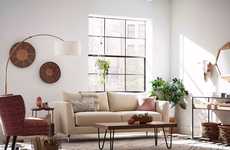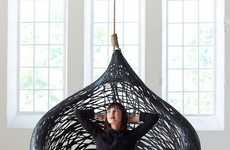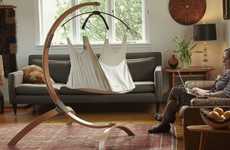
The 'Zero Per' Wooden Stool is Crafted from its Own Scrap Wood
Michael Hemsworth — February 24, 2017 — Art & Design
References: yankodesign
The 'Zero Per' wooden stool is crafted from materials in a bid to help reduce the amount of fresh wood materials that are needed in order to craft it.
The 'Zero Per' stool features legs that have been cut from a single sheet of wood, which are designed to be assembled using traditional wood joining techniques. The seat is composed of scrap wood that is created by the construction of the legs in order to eliminate the need for virgin materials to be used for each and every component in the process.
The 'Zero Per' wooden stools feature the seat portion created using the scrap wood that has been broken up and merged with resin in a mold in order to create a modern final product.
The 'Zero Per' stool is the design work of Jang Won, Kyungsun Hwang, Min-a Kim and Hajin Yoon.
The 'Zero Per' stool features legs that have been cut from a single sheet of wood, which are designed to be assembled using traditional wood joining techniques. The seat is composed of scrap wood that is created by the construction of the legs in order to eliminate the need for virgin materials to be used for each and every component in the process.
The 'Zero Per' wooden stools feature the seat portion created using the scrap wood that has been broken up and merged with resin in a mold in order to create a modern final product.
The 'Zero Per' stool is the design work of Jang Won, Kyungsun Hwang, Min-a Kim and Hajin Yoon.
Trend Themes
1. Sustainable Furniture - Disruptive innovation opportunity: Utilizing waste materials to create furniture reduces the need for fresh resources and promotes sustainability.
2. Circular Economy - Disruptive innovation opportunity: Embracing circular economy principles by repurposing scrap wood promotes resource efficiency and reduces waste.
3. Minimalist Design - Disruptive innovation opportunity: Designing furniture with clean and simple aesthetics attracts consumers looking for minimalist and functional pieces.
Industry Implications
1. Furniture Manufacturing - Disruptive innovation opportunity: Implementing sustainable materials and circular economy practices can differentiate furniture manufacturers in the market.
2. Interior Design - Disruptive innovation opportunity: Introducing minimalist furniture designs that incorporate sustainable elements aligns with the preferences of modern interior design trends.
3. Eco-friendly Home Decor - Disruptive innovation opportunity: Offering eco-friendly furniture options appeals to consumers seeking sustainable and responsible choices for their home decor.
4.8
Score
Popularity
Activity
Freshness


